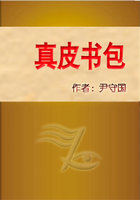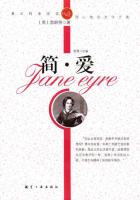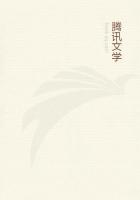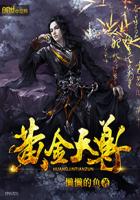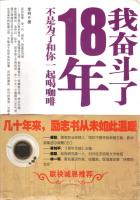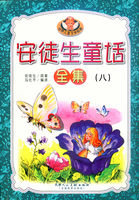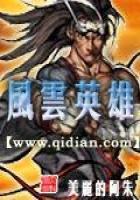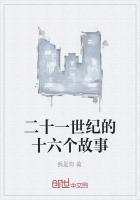She repeated this call three times, raising her voice each time. The recluse did not move; not a word, not a glance, not a sigh, not a sign of life.
Oudarde, in her turn, in a sweeter, more caressing voice, —“Sister!”said she, “Sister Sainte-Gudule!”
The same silence; the same immobility.
“A singular woman!”exclaimed Gervaise, “and one not to be moved by a catapult!”
“Perchance she is deaf, ”said Oudarde.
“Perhaps she is blind, ”added Gervaise.
“Dead, perchance, ”returned Mahiette.
It is certain that if the soul had not already quitted this inert, sluggish, Lethargic body, it had at least retreated and concealed itself in depths hither the perceptions of the exterior organs no longer penetrated.
“Then we must leave the cake on the window, ”said Oudarde; “some scamp will take it. What shall we do to rouse her?”
Eustache, who, up to that moment had been diverted by a little carriage drawn by a large dog, which had just passed, suddenly perceived that his three conductresses were gazing at something through the window, and, curiosity taking possession of him in his turn, he climbed upon a stone post, elevated himself on tiptoe, and applied his fat, red face to the opening, shouting, “Mother, let me see too!”
At the sound of this clear, fresh, ringing child's voice, the recluse trembled; she turned her head with the sharp, abrupt movement of a steel spring, her long, fleshless hands cast aside the hair from her brow, and she fixed upon the child, bitter, astonished, desperate eyes. This glance was but a lightning flash.
“Oh my God!”she suddenly exclaimed, hiding her head on her knees, and it seemed as though her hoarse voice tore her chest as it passed from it, “do not show me those of others!”
“Good day, madam, ”said the child, gravely.
Nevertheless, this shock had, so to speak, awakened the recluse. A long shiver traversed her frame from head to foot; her teeth chattered; she half raised her head and said, pressing her elbows against her hips, and clasping her feet in her hands as though to warm them, —
“Oh, how cold it is!”
“Poor woman!”said Oudarde, with great compassion, “would you like a little fire?”
She shook her head in token of refusal.
“Well, ”resumed Oudarde, presenting her with a flagon; “here is some hippocras which will warm you; drink it.”
Again she shook her head, looked at Oudarde fixedly and replied, “Water.”
Oudarde persisted, —“No, sister, that is no beverage for January. You must drink a little hippocras and eat this leavened cake of maize, which we have baked for you.”
She refused the cake which Mahiette offered to her, and said, “Black bread.”
“Come, ”said Gervaise, seized in her turn with an impulse of charity, and unfastening her woolen cloak, “here is a cloak which is a little warmer than yours.”
She refused the cloak as she had refused the flagon and the cake, and replied, “A sack.”
“But, ”resumed the good Oudarde, “you must have perceived to some extent, that yesterday was a festival.”
“I do perceive it, ”said the recluse; “'tis two days now since I have had any water in my crock.”
She added, after a silence, “'Tis a festival, I am forgotten. People do well.Why should the world think of me, when I do not think of it?Cold charcoal makes cold ashes.”
And as though fatigued with having said so much, she dropped her head on her knees again. The simple and charitable Oudarde, who fancied that she understood from her last words that she was complaining of the cold, replied innocently, “Then you would like a little fire?”
“Fire!”said the sacked nun, with a strange accent; “and will you also make a little for the poor little one who has been beneath the sod for these fifteen years?”
Every limb was trembling, her voice quivered, her eyes flashed, she had raised herself upon her knees; suddenly she extended her thin, white hand towards the child, who was regarding her with a look of astonishment.“Take away that child!”she cried.“The Egyptian woman is about to pass by.”
Then she fell face downward on the earth, and her forehead struck the stone, with the sound of one stone against another stone. The three women thought her dead.A moment later, however, she moved, and they beheld her drag herself, on her knees and elbows, to the corner where the little shoe was.Then they dared not look; they no longer saw her; but they heard a thousand kisses and a thousand sighs, mingled with heartrending cries, and dull blows like those of a head in contact with a wall.Then, after one of these blows, so violent that all three of them staggered, they heard no more.
“Can she have killed herself?”said Gervaise, venturing to pass her head through the air-hole.“Sister!Sister Gudule!”
“Sister Gudule!”repeated Oudarde.
“Ah!good heavens!she no longer moves!”resumed Gervaise; “is she dead?Gudule!Gudule!”
Mahiette, choked to such a point that she could not speak, made an effort.“Wait, ”said she. Then bending towards the window, “Paquette!”she said, “Paquette le Chantefleurie!”
A child who innocently blows upon the badly ignited fuse of a bomb, and makes it explode in his face, is no more terrified than was Mahiette at the effect of that name, abruptly launched into the cell of Sister Gudule.
The recluse trembled all over, rose erect on her bare feet, and leaped at the window with eyes so glaring that Mahiette and Oudarde, and the other woman and the child recoiled even to the parapet of the quay.
Meanwhile, the sinister face of the recluse appeared pressed to the grating of the air-hole.“Oh!oh!”she cried, with an appalling laugh; “'tis the Egyptian who is calling me!”
At that moment, a scene which was passing at the pillory caught her wild eye. Her brow contracted with horror, she stretched her two skeleton arms from her cell, and shrieked in a voice which resembled a death-rattle, “So 'tis thou once more, daughter of Egypt! 'Tis thou who callest me, stealer of children!Well!Be thou accursed!accursed!accursed!accursed!”
Chapter4 A Tear for a Drop of Water
These words were, so to speak, the point of union of two scenes, which had, up to that time, been developed in parallel lines at the same moment, each on its particular theatre; one, that which the reader has just perused, in the Rat-Hole; the other, which he is about to read, on the ladder of the pillory. The first had for witnesses only the three women with whom the reader has just made acquaintance; the second had for spectators all the public which we have seen above, collecting on the Place de Grève, around the pillory and the gibbet.
That crowd which the four sergeants posted at nine o'clock in the morning at the four corners of the pillory had inspired with the hope of some sort of an execution, no doubt, not a hanging, but a whipping, a cropping of ears, something, in short, —that crowd had increased so rapidly that the four policemen, too closely besieged, had had occasion to“press”it, as the expression then ran, more than once, by sound blows of their whips, and the haunches of their horses.
This populace, disciplined to waiting for public executions, did not manifest very much impatience. It amused itself with watching the pillory, a very simple sort of monument, composed of a cube of masonry about six feet high and hollow in the interior.A very steep staircase, of unhewn stone, which was called by distinction“the ladder, ”led to the upper platform, upon which was visible a horizontal wheel of solid oak.The victim was bound upon this wheel, on his knees, with his hands behind his back.A wooden shaft, which set in motion a capstan concealed in the interior of the little edifice, imparted a rotatory motion to the wheel, which always maintained its horizontal position, and in this manner presented the face of the condemned man to all quarters of the square in succession.This was what was called“turning”a criminal.
As the reader perceives, the pillory of the Grève was far from presenting all the recreations of the pillory of the Halles.Nothing architectural, nothing monumental.No roof to the iron cross, no octagonal lantern, no frail, slender columns spreading out on the edge of the roof into capitals of acanthus leaves and flowers, no waterspouts of chimeras and monsters, on carved woodwork, no fine sculpture, deeply sunk in the stone.
They were forced to content themselves with those four stretches of rubble work, backed with sandstone, and a wretched stone gibbet, meagre and bare, on one side.
The entertainment would have been but a poor one for lovers of Gothic architecture. It is true that nothing was ever less curious on the score of architecture than the worthy gapers of the Middle Ages, and that they cared very little for the beauty of a pillory.
The victim finally arrived, bound to the tail of a cart, and when he had been hoisted upon the platform, where he could be seen from all points of the Place, bound with cords and straps upon the wheel of the pillory, a prodigious hoot, mingled with laughter and acclamations, burst forth upon the Place. They had recognized Quasimodo.
It was he, in fact.The change was singular.Pilloried on the very place where, on the day before, he had been saluted, acclaimed, and proclaimed Pope and Prince of Fools, in the cortege of the Duke of Egypt, the King of Thunes, and the Emperor of Galilee!One thing is certain, and that is, that there was not a soul in the crowd, not even himself, though in turn triumphant and the sufferer, who set forth this combination clearly in his thought. Gringoire and his philosophy were missing at this spectacle.
Soon Michel Noiret, sworn trumpeter to the king, our lord, imposed silence on the louts, and proclaimed the sentence, in accordance with the order and command of monsieur the provost. Then he withdrew behind the cart, with his men in livery surcoats.
Quasimodo, impassible, did not wince. All resistance had been rendered impossible to him by what was then called, in the style of the criminal chancellery, “the vehemence and firmness of the bonds”which means that the thongs and chains probably cut into his flesh; moreover, it is a tradition of jail and wardens, which has not been lost, and which the handcuffs still preciously preserve among us, a civilized, gentle, humane people.
He had allowed himself to be led, pushed, carried, lifted, bound, and bound again. Nothing was to be seen upon his countenance but the astonishment of a savage or an idiot.He was known to be deaf; one might have pronounced him to be blind.
They placed him on his knees on the circular plank; he made no resistance. They removed his shirt and doublet as far as his girdle; he allowed them to have their way.They entangled him under a fresh system of thongs and buckles; he allowed them to bind and buckle him.Only from time to time he snorted noisily, like a calf whose head is hanging and bumping over the edge of a butcher's cart.
“The dolt, ”said Jehan Frollo of the Mill, to his friend Robin Poussepain, “he understands no more than a cockchafer shut up in a box!”
There was wild laughter among the crowd when they beheld Quasimodo's hump, his camel's breast, his callous and hairy shoulders laid bare. During this gayety, a man in the livery of the city, short of stature and robust of mien, mounted the platform and placed himself near the victim.His name speedily circulated among the spectators.It was Master Pierrat Torterue, official torturer to the Chatelet.
He began by depositing on an angle of the pillory a black hour-glass, the upper lobe of which was filled with red sand, which it allowed to glide into the lower receptacle; then he removed his parti-colored surtout, and there became visible, suspended from his right hand, a thin and tapering whip of long, white, shining, knotted, plaited thongs, armed with metal nails. With his left hand, he negligently folded back his shirt around his right arm, to the very armpit.
In the meantime, Jehan Frollo, elevating his curly blonde head above the crowd, shouted:“Come and look, gentle ladies and men!they are going to peremptorily flagellate Master Quasimodo, the bellringer of my brother, monsieur the archdeacon of Josas, a knave of oriental architecture, who has a back like a dome, and legs like twisted columns!”
And the crowd burst into a laugh, especially the boys and young girls.
At length the torturer stamped his foot. The wheel began to turn.Quasimodo wavered beneath his bonds.The amazement which was suddenly depicted upon his deformed face caused the bursts of laughter to redouble around him.
All at once, at the moment when the wheel in its revolution presented to Master Pierrat, the humped back of Quasimodo, Master Pierrat raised his arm; the fine thongs whistled sharply through the air, like a handful of adders, and fell with fury upon the wretch's shoulders.
Quasimodo leaped as though awakened with a start. He began to understand.He writhed in his bonds; a violent contraction of surprise and pain distorted the muscles of his face, but he uttered not a single sigh.He merely turned his head backward, to the right, then to the left, balancing it as a bull does who has been stung in the flanks by a gadfly.



